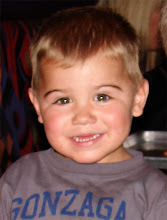- CHD is the most common birth defect, and is the leading cause of birth-defect related deaths. More babies are born with congenital heart defects than with Spina Bifida, Down's syndrome and hearing loss.
- It is estimated that 40,000 babies with Congenital Heart Defects (CHD) are born in the United States each year. That's 1 in 100! More than 1 million American children and adults with Congenital Heart Defects and Childhood Onset Heart Disease are alive today.*
- Although some babies will be diagnosed at birth, sometimes the diagnosis is not made until days, weeks, months, or even years after. In some cases, CHDs are not detected until adolescence or adulthood.
- Some CHDs may not require treatment other than periodic visits to a Pediatric Cardiologist. Others can be treated with medications or repaired with surgery and/or procedures. Complex defects may require several surgeries and are never really "cured".
- Many cases of sudden cardiac death in young athletes are caused by undiagnosed CHDs and Childhood Onset Heart Disease.
- It is estimated that more adults than children are living with congenital heart disease, and this population is expected to grow by 5% each year. Yet, many adults with CHD are not receiving adequate ongoing care from trained specialists.**
* American Heart Association: Statistical Update 2001
**Report of the National Heart, Lung, and Blood Institute Working Group on Research in Adult Congenital Heart Disease, 2006
The more attention we can bring to this issue, the more funding we can raise for research and more lives we can save!
Here's one tangible idea for you if you're looking for ways to get involved. You can sign a petition which would make pulse oximetry testing a part of newborn screening. It's quick and completely painless (Luke gets his sat's checked ALL the time through a pulse ox) and could detect many CHD's at a much earlier point. Click here to sign the petition.



